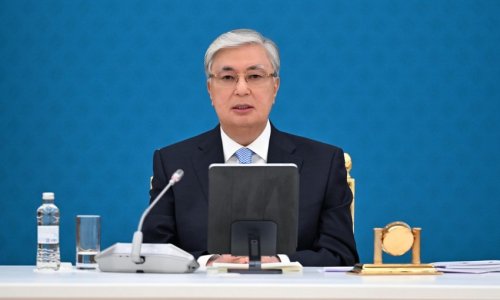By Jim Bridenstine
In a landmark achievement, the United States recently surpassed Russia as the world’s largest combined producer of oil and gas according to an October 2013 Wall Street Journal analysis of International Energy Agency statistics. This milestone was reached because private capital and innovative entrepreneurs took calculated risks striving for access to new energy resources and the tools to produce and distribute them more efficiently. The “Fracking Revolution,” which could secure America’s energy future for generations, is testament to the technological advancement brought by free enterprise and open markets.
Unfortunately, nations in Eastern Europe and the South Caucasus do not share a similar energy security. Russia continues to subvert the independence of its former Soviet satellite states by controlling their energy resources. Just a few weeks ago Ukraine, a critical East-West energy conduit, appeased Russia – Kiev’s main energy supplier – by scuttling a long-awaited association agreement with the European Union. The EU agreement would have committed Ukraine to important political, economic, and trade liberalization reforms. Now, Ukraine is unlikely to develop more democratic institutions or free markets because Moscow effectively controls Kiev’s foreign policy.Unlike some other former Soviet satellite states, Azerbaijan has taken great risks to achieve political independence from Russia and a secure energy future. It is utilizing western companies, free markets, and private capital to conduct Caspian Sea-based energy exploration and distribution. Azerbaijan’s wise decision is now providing energy security for our European allies and friends. To avoid another Ukraine debacle, U.S. foreign policy must support Azerbaijan’s energy development through both diplomatic assistance to protect Azerbaijan from Russian interference and increased security cooperation with Baku to safeguard its facilities and pipelines. Congress should take the first step by repealing Section 907 of the antiquated U.S. Freedom Support Act, a provision which unnecessarily inhibits U.S. cooperation with Azerbaijan. Protecting Azerbaijan’s energy renaissance supports foundational U.S. foreign policy objectives of ensuring our allies’ political independence and free markets.Squeezed between Russia and Iran, Azerbaijan is an unlikely energy powerhouse. Yet, Azerbaijan ranks 21st in proven oil reserves and 26th in gas according to the U.S. Energy Information Administration (EIA).2 Azerbaijan’s government reports that oil production more than tripled to almost one million barrels per day since 2000. Gas production in the Caspian’s Shah Deniz field skyrocketed to over 580 billion cubic last year even prior its full development. With an EIA-estimated 30 trillion cubic feet of gas reserves, Azerbaijan is well-stocked to provide energy security for our European friends into the future.We should also carefully note who produces and to whom Baku distributes its energy riches. Rather than opt for a state-controlled top-down system, Azerbaijan became the first country to open the Caspian to U.S. energy companies. American and Western energy firms are major partners in resource exploration and production and also development of an expanding pipeline network. EIA notes that Azerbaijan’s state oil company only accounts for 20 percent of total petroleum output. U.S. companies such as Chevron, ConocoPhillips, and ExxonMobil, among others are big shareholders in the Shah Deniz field consortium and pipeline network.Rather than capitulate to Moscow’s bullying, Baku builds oil and gas pipelines that specifically avoid the trap of crossing into Russian territory. Azerbaijan’s oil and gas exports directly increase the energy security of our European and Israeli allies by helping diversify supply. The Baku-Tblisi-Ceyhan pipeline helps deliver 40 percent of Israel’s oil consumption according to the Washington Institute for Near East Peace. The South Caucasus pipeline helps fuel Turkey’s economic boom. The emerging Southern Gas Corridor will connect Caspian gas to Europe and decrease European reliance on Russia even further. In another impressive commitment, Azerbaijan recently decided to send over 350 billion cubic feet of gas to southern Europe through the Trans Adriatic Pipeline.While Azerbaijan and America see energy as the means to generate prosperity and security, other countries take a darker view. With few other sources of power, Russia uses energy as a weapon to intimidate and coerce. Many of our NATO allies rely heavily on Russian oil and gas. This dependency provides Moscow with license to meddle in the internal affairs and foreign policies of many countries, particularly our newest NATO allies in Eastern Europe. In January 2009, for example, Russia halted gas exports to Ukraine in the dead of winter and people suffered. By extension, this round of Russian pipeline politics once again threatened our closest allies because their gas comes from Ukraine.Diversifying supply is always sensible, but it becomes strategically imperative when countries such as Russia exploit dependency to threaten other nations’ political independence. Fortunately, Azerbaijan’s energy boom – a genuine partnership with private enterprise – provides an additional way to ensure energy security. The United States should fully support Azerbaijan’s energy development so that Baku is not forced to choose between integrating with the West or being coerced into Vladimir Putin’s dreams of a new Russian imperium.• Rep. Jim Bridenstine represents the First District of Oklahoma.ANN.Az
Follow us !











